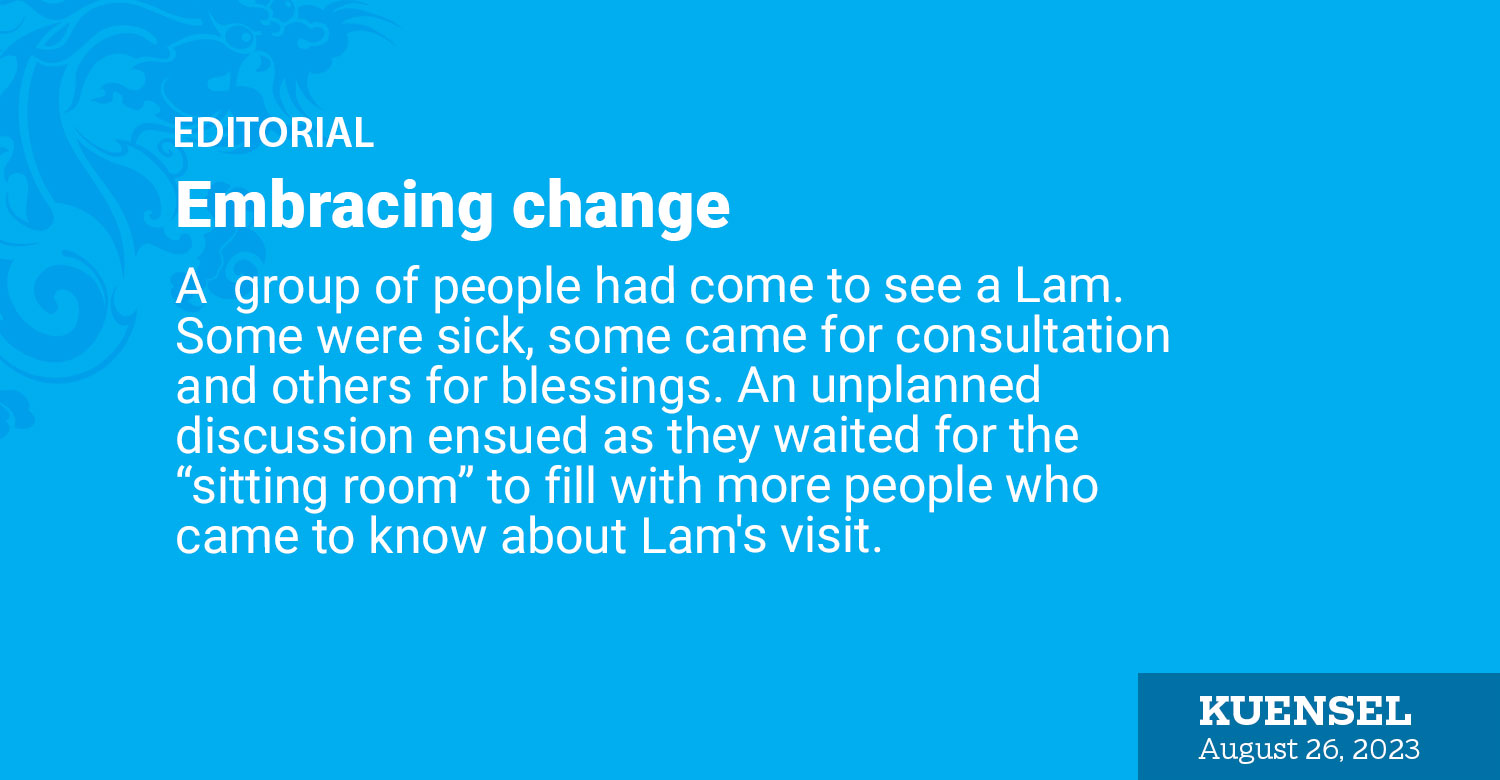A group of people had come to see a Lam. Some were sick, some came for consultation and others for blessings. An unplanned discussion ensued as they waited for the “sitting room” to fill with more people who came to know about Lam‘s visit.
The discussion was brief but intense. It touched everything from the cost of sand to Australia to the private sector and work pressure. And if we go by the tone of the brief discussion or if it was any reflection of the current mood among the public, it is not encouraging.
The retired officer building a house is worried about the escalating cost of construction, particularly sand, and not finding tenants. The wife of the public servant is complaining of her husband’s never-ending meetings. Another alleged doctors of misdiagnosing her mother’s illness. All these were issues that affect our daily lives and deserve some retrospection.
We are still on the road to recovery from the impacts of Covid-19 pandemic. The economy, which many hoped, would kickstart a frenzy of stalled development activities, is not in the best of shape. If lack of budget is the excuse for every proposal, it is hindering growth and ideas. Policies put in place, many feel are too restrictive, strangling private sector growth.
The tone of discussion at every gathering is no different these days. What comes out more clearly is the officialdom and bureaucratic process that is, in their own words, stifling growth. Some even critique that in the midst of transformation and reforms, we have undone what we achieved thus far. To be precise, centralisation instead of decentralisation, restrictions instead of ease of doing business, secrecy instead of transparency and many more.
So used to our so-called systems, Bhutanese resist change. There is a consensus, especially those outside the bureaucracy, that we have to change the way we do things and how we do it. Expecting results overnight is unreasonable therefore, we should give time to see the results of changes initiated. However, the complaint is not all about the recent changes.
Many are angry with the “system” not changing or changing for the worse. Some accuse officials tasked to ensure smooth service delivery for protecting their turf or head in the name of change or transformation. Those outside the public service welcomed the results of the reforms. For a contractor, it is transparency in awarding work, less paper work and running around for a young entrepreneur seeking clearance or an import license. It seems, going by their feedback, we have changed, only for the department or the agency.
To be fair, it takes time for changes to make differences. Change or reform will work if everybody is on the same page. For now, it seems, that is not the case. Those availing services know it well and they accuse relevant departments and ministries of not getting it. Those outside the public service are also waiting to transform. They need business-friendly policies, reduced bureaucracy, transparency and efficiency to transform.
Leaving for Australia, like the Lam who is leaving for a fund-raising tour, is an opportunity. It should not be seen as a vengeance to get back to those staying behind or the “system.”


